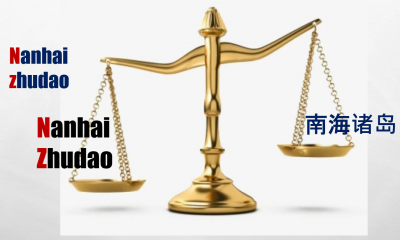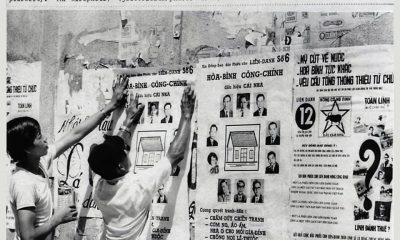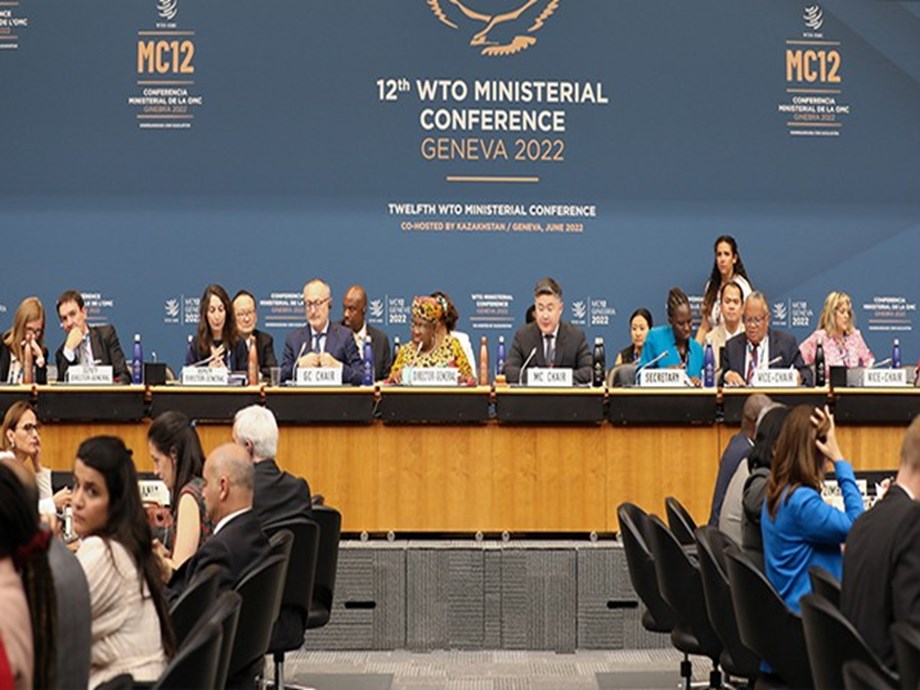Hung Tran
The Twelfth Ministerial Conference (MC12) of the World Trade Organization (WTO) has concluded its meeting—after repeated delays in the past five years—by compromising to produce the Geneva Package of trade agreements. These agreements are useful and welcome, but fail to address the key obstacles to a smooth functioning of the WTO-rule based trading system. As such, the WTO remains hostages to intensifying geopolitical tension and strategic competition.
Basically, the Geneva Package includes agreements on several immediate issues.
Exempting World Food Program purchases from export prohibitions or restrictions—more than a dozen countries have banned exports of food following disruptions in grain supply due to the war in Ukraine, exacerbating food shortages and price increases.
Allowing developing member countries to limit intellectual property rights and to authorize the production and supply of Covid-19 vaccines (but not a wider range of emergency products as demanded by many developing countries) to the extent necessary to deal with the pandemic, while undertaking to prevent the re-exportation of such vaccines. Those developing countries with a capacity to produce Covid-19 vaccines domestically (i.e. China) are encouraged not to make use of this agreement.
Maintaining the current practice of not imposing custom duties on electronic transmissions (i.e. e-commerce) until MC13 which is ordinarily scheduled to take place by December 31, 2023. If MC13 is being delayed beyond December 31, 2024, the moratorium on e-commerce duty will end on that date unless further extended by agreement. This will prolong the fight between developing countries wanting to tax e-commerce transactions to raise budgetary revenues but opposed by businesses.
Agreeing to prohibit state subsidies to illegal, unreported and unregulated (IUU) fishing activities. Given the depletion of many fish stocks due to extensive overfishing, it is disappointing that the best the WTO can manage is banning the subsidies to IUU fishing, but not the activities themselves. As in the case of state subsidies in general, it is difficult to enforce bans of subsidies especially against countries determined to engage in such activities. This shows the limits of meaningful reforms within the WTO to deal with important and urgent problems—one of its most powerful member China ranks worst on the Global Illegal Fishing Index.
The Geneva Package has left untouched several fundamental problems which have stymied WTO functions in recent years; and will continue to do so in the period ahead.
Most immediately, the WTO dispute settlement system is not functioning properly as its Appellate Body of seven members remains inactive—there being currently no member of the Body. The US continues to block appointment of new members until the whole system is reformed to address its concerns about “judicial overreaching”—the Appellate Body making decisions not in strict adherence to agreed trade rules; and those decisions accumulate to be used as precedents in later cases, thus deviating further from agreements by members. The MC12 has promised to work on reform proposals and report them to the MC13.
More fundamentally, no progress has been made to address the incompatibility between China’s political and economic system and that of most of other WTO members. The problem is not just about state subsidies—defined by the WTO as financial and regulatory support by governments to enable domestic companies to gain unfair advantages over foreign companies. It is about the nature of the Chinese system under which the influence and control of the Chinese Communist Party and State permeate the whole society. All businesses, state owned or otherwise, are guided by the Party/State by numerous means—including the insertion of Party cells in companies—to act in approved ways to achieve national goals. It is quite difficult to envision a global rule-based trading system assuring a transparent level playing field between companies operating under the Chinese system and those in the West and other countries. This systemic incompatibility between China and many other countries will continue to marginalize the role of the WTO in favor of more regional and bilateral trading arrangements; increasingly based on reciprocity instead of being rule-based.

 Politics & Economy3 years ago
Politics & Economy3 years ago
 Society & Culture4 years ago
Society & Culture4 years ago
 ARCHIVES4 years ago
ARCHIVES4 years ago
 Politics & Economy3 years ago
Politics & Economy3 years ago
 Politics & Economy4 years ago
Politics & Economy4 years ago
 Politics & Economy3 years ago
Politics & Economy3 years ago
 Politics & Economy4 years ago
Politics & Economy4 years ago
 ARCHIVES3 years ago
ARCHIVES3 years ago





